Identity
The Search for a Politics of Community
What’s now being sought is a system in which power is exercised by representatives of those who constitute a majority.
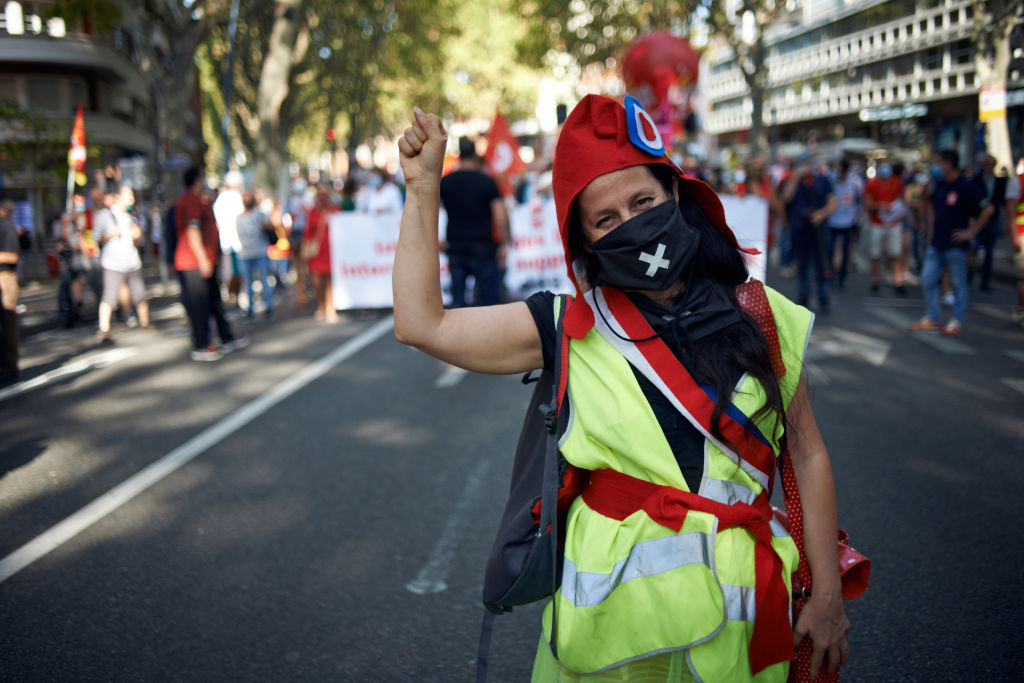
After COVID-19—when that moment finally arrives—will be a bleak time for most. Debts must be reckoned with; cuts must be made; seasons of possibly violent political struggle will not be avoided. But COVID-19 monopolises so much news media time and content, that it has frozen or put out of most minds large social and political issues with which democracies will have to contend in due course. They may have to deal with them to remain democracies.
One of these, which still intrudes into the news, is the migrant issue. Last week, a Kurdish-Iranian family drowned in the English Channel, reportedly forced onto a frail boat for a desperate voyage to the UK. The pity of this tragic incident, which claimed the lives of two adults and three children, kept it in the news for a couple of days. Then the migrant issue receded again. Still, it waits. “The West,” Israeli political scientist Martin Van Creveld has observed, “is rather like a besieged castle, the waves battering against the walls. They [the 80 percent of the world’s population which is not the West] will certainly batter them down if we continue to have capitalism without equity and justice.”
The long migrant crisis, which now bears the mark of insolvability, is likely to worsen—the countries from which the majority of migrants travel will become still more wretched after the pandemic. But before that again imposes itself, others, closer to home, will be battering at the walls. These are the 60–70 percent of “the West” who believe this rich, comfortable, presently peaceful enclave of the globe has not delivered for them. The walls they seek to breach are not the external ones which greet and increasingly repel migrants, but internal, often invisible walls which keep them out of the high earning, high status, high respect areas of their countries, occupied by those on account of their birth (still), education, or good fortune (or all of these).
However, there’s a new movement growing in the womb of the old. It’s informed by a growing conviction that the current version of capitalism is broken, and that the pandemic and its aftermath will make that clear. The “populist” eruptions in the US, the UK, France, Italy, and elsewhere are protests against a system that no longer grants status and dignity and adequate living standards to the majority. Yet, once in power, populism as practised by Trump and the short-lived Italian coalition government of 2018–19 hasn’t provided solutions to the problems of a politics run by highly educated technocrats either, and there is a growing realisation that socialism offers no panacea. So this emerging movement is striving to build a new politics rooted in community.

Technocrats can’t be dispensed with, particularly since the period we are now entering will depend more than ever on mysterious (to most) technologies driving most of the institutions that support our lives and lifestyles. But there’s a growing feeling that technocrats should not be in control—perhaps the largest problem democracies face is a revolt against an establishment politics by many in the working and lower-middle class; a revolt against governance largely confined to the highly educated. Their ranks are swollen by cohorts of the highly educated who can’t find jobs to match their degrees and expectations. This is always a dangerous group: the repressive Russian establishment in the 19th century feared them, calling them “superfluous persons” (lishnii chelovek), and in 1917 those fears were proven correct.
What’s now being sought is a system in which power is exercised by representatives of those who constitute a majority. The easy response is that in democracies, the majority choice in elections becomes the administration at every level, from local council to national government. But this is countered by a growing belief that whoever is elected will produce a government of highly educated middle or upper-middle class politicians whose senior aides and civil servants have the same background. They flatter the voters when seeking office, but privately find them contemptible.
In 2016, this was how Hilary Clinton was seen by many in the American working and middle classes—her private description of some of Donald Trump’s supporters as “deplorables” inflamed and seemed to corroborate their existing grievance at having been left out. They had seen well-paid jobs in coal, steel, and heavy engineering destroyed by an open trading regime, including a free trade agreement with Canada and Mexico; they had lost, over decades, the protection of once-strong trade unions; and they had seen young men and an increasing number of young women drawn largely from their ranks fight and die in—or return wounded or traumatised from—foreign wars with states that did not threaten America.
This is not merely an American matter—the super-technocratic French president Emmanuel Macron enraged the presently quiescent Gilets Jaunes with what they perceived to be his scornful attitude to their interests. In particular, they were angered by the rising price of diesel fuel, upon which those in the small towns and villages of France depended for their livelihood. Brexit, an expression of the rational desire for more democratic and comprehensible government, was also propelled by a similar feeling of being forgotten. In a forthcoming book entitled Despised: Why the Modern Left Loathes the Working Class, the British firefighter Paul Embery spends 200 pages passionately denouncing the Labour Party (of which he remains a member) for becoming a support group of the “new cosmopolitan liberalism.”
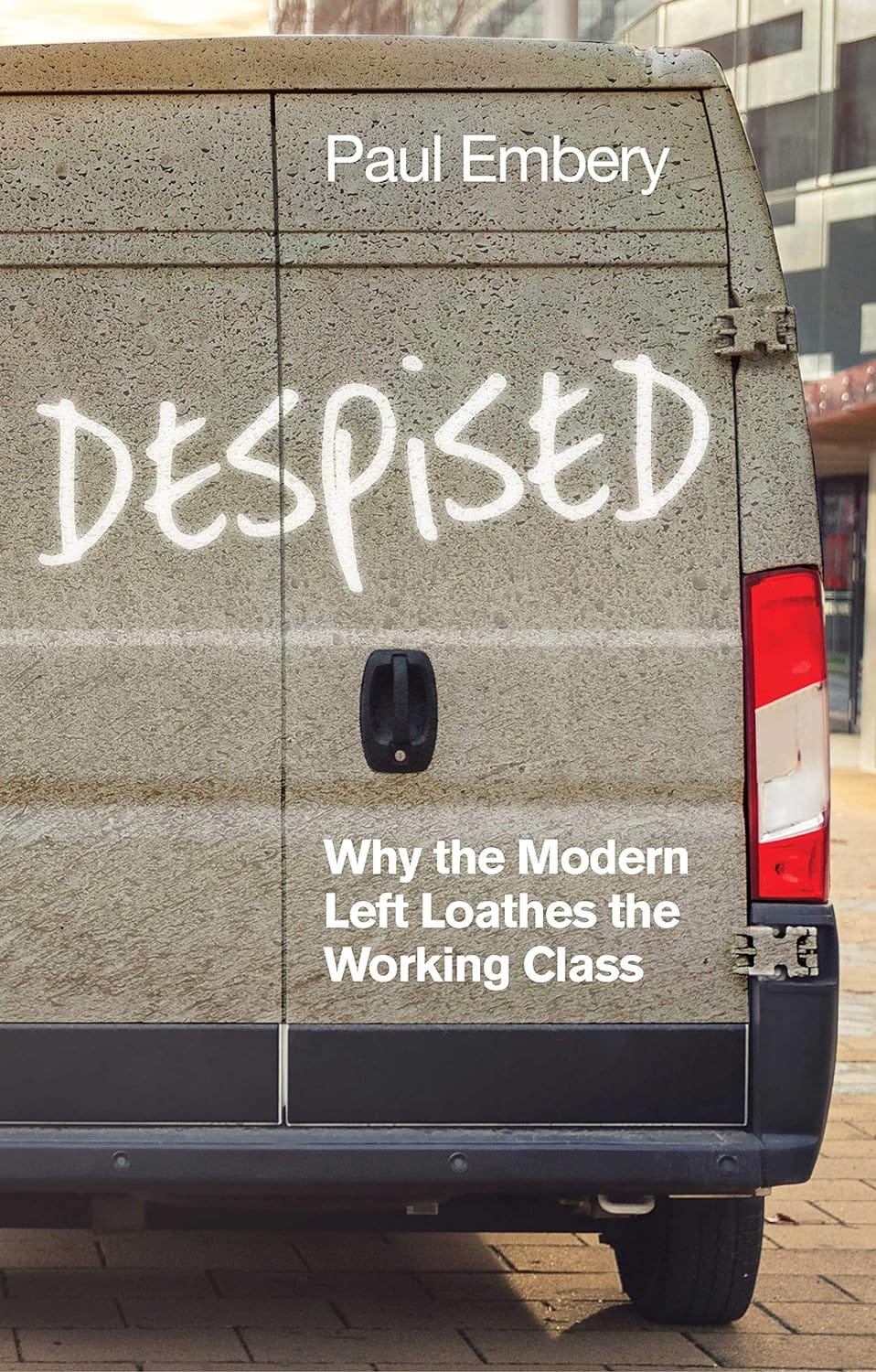
In his campaign and his inaugural address, Trump promised to sort all this out. And he has, indeed, accomplished some of it. As John Bolton’s recent political memoir The Room Where it Happened made clear, Trump has been keen to the point of obsession to get American troops, officials, and even diplomats out of a range of countries, especially those he once referred to as “shit holes.” He picked a trade war with China (some of the reasons for which were justified). However, while he may have slowed the rate of decline in the big industrial centres until the pandemic struck, he has not saved the coal mines of West Virginia nor brought back production of commodities now outsourced. The profit logic of high US wages and low pay in China and south-east Asia has resisted him.
He has continued to flatter and rouse his loyal base: his rallies and sallies are, as the British writer Douglas Murray has observed, good fun. And, should he lose, the world will miss being outraged by him. But the palpable irresponsibility of his treatment of the COVID-19 pandemic and his endless repetition of the old, self-obsessed themes of the past decade seem to have lost those less strongly attached. The former editor of the Wall Street Journal, Gerard Baker, once a supporter, wrote that “voters [are] tired of it all—the bombast, the carnival barker antics, the casual cruelty.” Trump’s populism, in other words, has severe limits, as all populisms of the “whatever you want” variety must. Populist rulers, faced with a disappointed electorate when the emptiness of their rhetoric becomes evident, often take an authoritarian turn, as we now see in Venezuela. That was not about to happen in the US—for all its present and past faults, it is well protected by democratic habits, division of powers, challenging news media, and robust civil society.
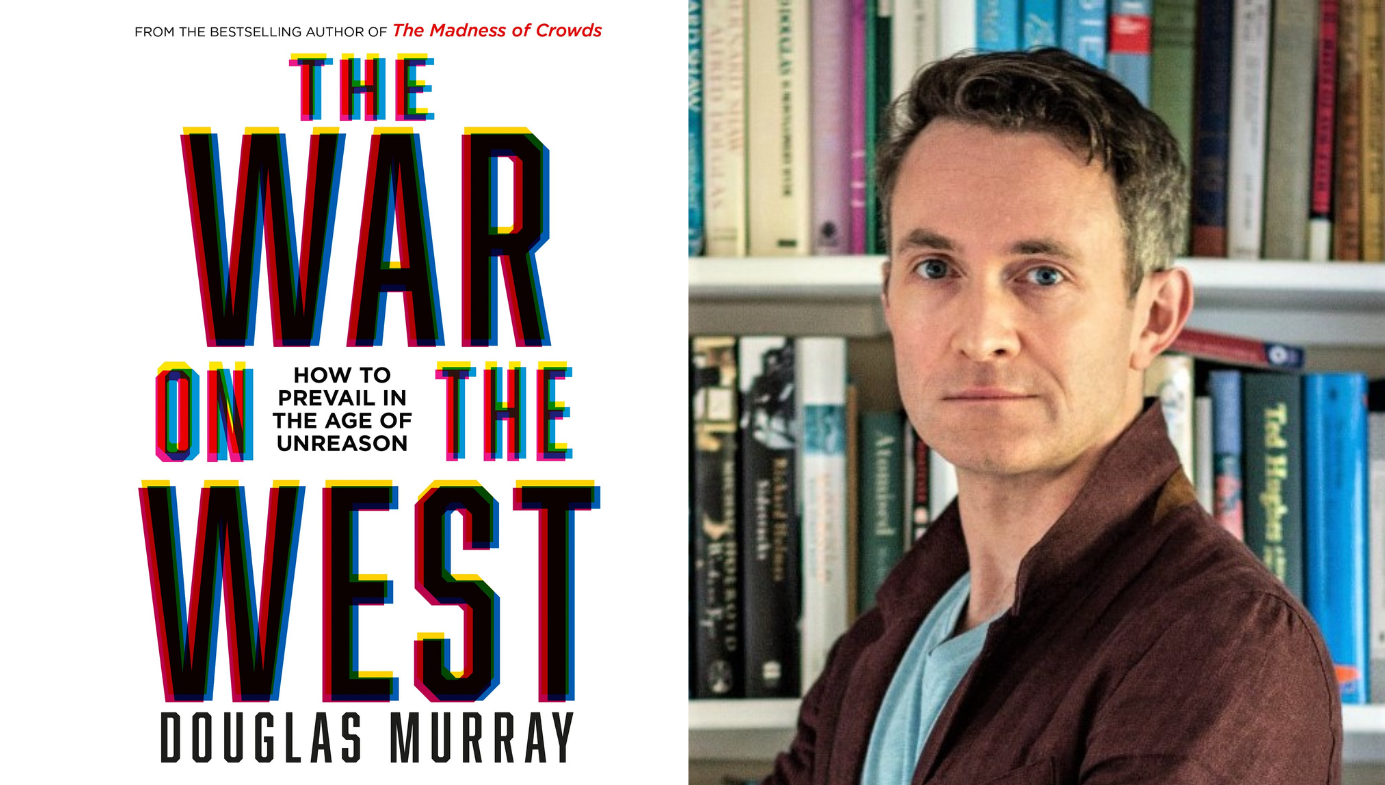
Between governance by haughty technocracy and governance by bombastic narcissist, what is the alternative? Part of the explanation for Joe Biden’s popularity is that he did not have a privileged childhood. His once-comfortable family fell into relative hard times, and they lived with his grandparents until his father became a successful used-car salesman. Biden plays too much on what was not, after all, grinding poverty, and he is something of a populist himself. Nevertheless, unlike Trump he is experienced, and despite bitter family loss, he seems to be a decent not a rancorous man. His familiarity and failings make him unthreatening—like a garrulous neighbour who still helps you out when needed.
But a Biden government will not change the basic problem. His administration will be full of very bright, educated, and ambitious men and women (including his vice-president, Kamala Harris), who will do their best to serve a left-of-centre administration. But they will still be entirely unlike the rest of America. And it is to the rest of America, and the rest of the populations in other democracies, that a new politics must appeal.
* * *
Sketches of alternative political approaches are now emerging in books, articles, and speeches from both sides of the ideological spectrum. For now, their authors mainly find champions among the intelligentsia, but they seek support among the politically rootless. The aim is to include such people in a kind of governance that avoids the pitfalls of technocratic politics and unsustainable populism. The next political project, they believe, should be a more soundly based democracy, rather than one that rests on crumbling pillars.
In Despised, Paul Embery argues that the centre-Left has been captured by “an arrogant liberal and cultural elite,” and that a large shift in its thinking is necessary before it can appeal to voters presently excited by populism or the far-Right. This requires an acknowledgement that “neither the unrestrained market nor the over-mighty, impersonal state are ultimately a substitute for human solidarity and mutual self-help—for the very concept of society itself—and the happiness and benefits they bring. [The Labour Party] must… build a politics of the common good by bringing together conflicting interests.” Much of his argument applies to the centre-Left more generally—a political formation which tends to have more members in the middle and upper-middle classes than among the classes lower down the social scale.

Embery wants the majorities in most countries—in manual, clerical, service jobs, in schools, universities, shops and hospitals, factories and farms—to see their views and values reflected in any party that claims to represent them. These include everyday patriotism, dislike of political correctness and mass immigration, and attachment to locality, family, and social order. Oddly, something approaching this goal has already emerged in the UK under Boris Johnson’s government. As Embery admits, the Conservatives have articulated this agenda more forcefully than the Labour Party’s new leader, Sir Keir Starmer, a former head of Britain’s prosecution service.
Under Corbyn’s leadership, the economic, political, and cultural preferences of the working class were given little attention. Instead, Labour emphasised the need for extensive public ownership in the UK, and remained ambiguous about its attitude towards the European Union, NATO, and the leadership of the United States (in opposition, Corbyn and his closest colleagues and aides had been hostile to all three). A Corbyn-led Labour government would almost certainly have greatly increased the power of the state, and repositioned itself as a doubtful member of “the West.” That Corbyn stood silently through the national anthem, indicates that he was never likely to connect with the voters Embery identifies, for whom symbolic displays of patriotic feeling are important.
Embery’s plea for the revival of institutions to which the working majority of the country could feel attached is lent support by The Upswing, a new book by Harvard sociologist, Robert Putnam (with Shaylyn Romney Garrett). As I wrote in a recent review:
This version of 20th-century US history celebrates the economic growth, the rise in working-class wages, the greater social provision, the solidarity engendered by networks of clubs, associations, trade unions, full churches, and growing government intervention. The “World War II catch-up boom” was followed by year after year of economic success, underpinning the US’s status as the world’s leading superpower.
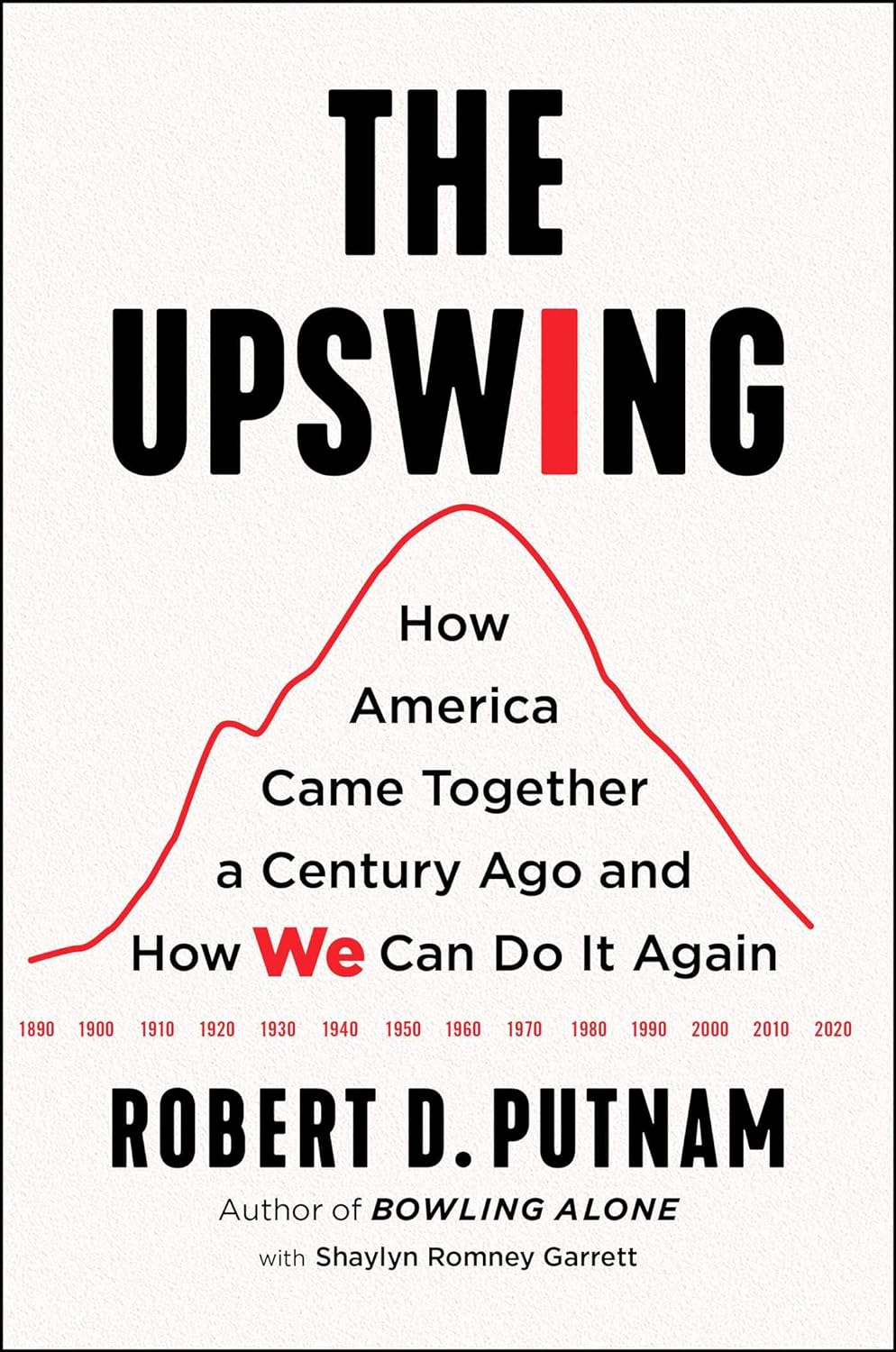
Putnam, too, celebrates community, which he says is inherent in pre- and post-war American society. This is community based in institutions created, not by the state, but by citizens themselves to fulfil their own economic, religious, and social needs. He sees the 1960s as an era which “turned progress in incomes, equality, and public services downwards. Americans entered the decade seeking racial and economic equality—and we left the sixties in an increasingly ‘I’ mode, focused on ‘rights,’ ‘culture wars,’ paving the way for the self-absorbed 1970s. Idealism took a sharp turn, from ‘We’ to ‘Me.’”
Both Embery and Putnam blame the lost community spirit and practice on idealism—pursuit of an unattainable aspiration, dogged by “free riders” who made use of its communal advantages without contributing to them. Both writers wish to preserve the individual freedom won in the 60s, but they make clear the costs. And while they share a deepening scepticism about the virtue of capitalism, neither sees socialism as a self-evident remedy. This balancing act is also evident in Deaths of Despair and the Future of Capitalism, the latest work by Princeton economists Anne Case and Angus Deaton. In a recent interview with the American Interest, Deaton observed that:
[T]he availability of the contraceptive pill [has] had huge social consequences, some good, some bad. For a woman who is determined to go to college and become a professional, the contraceptive pill has opened up a whole new world of opportunity. But for people who don’t want to do that—or are not cut out to do that—it’s reduced their bargaining power and made their lives a lot worse.
Deaton adds that: “What’s happened is that the quality of the jobs has gone down and then when people get shaken out of jobs, they are often reluctant to come back into a market where there are fewer good jobs… it’s pretty clear that the effects of automation and globalization are destroying the market for people with a working class education.”
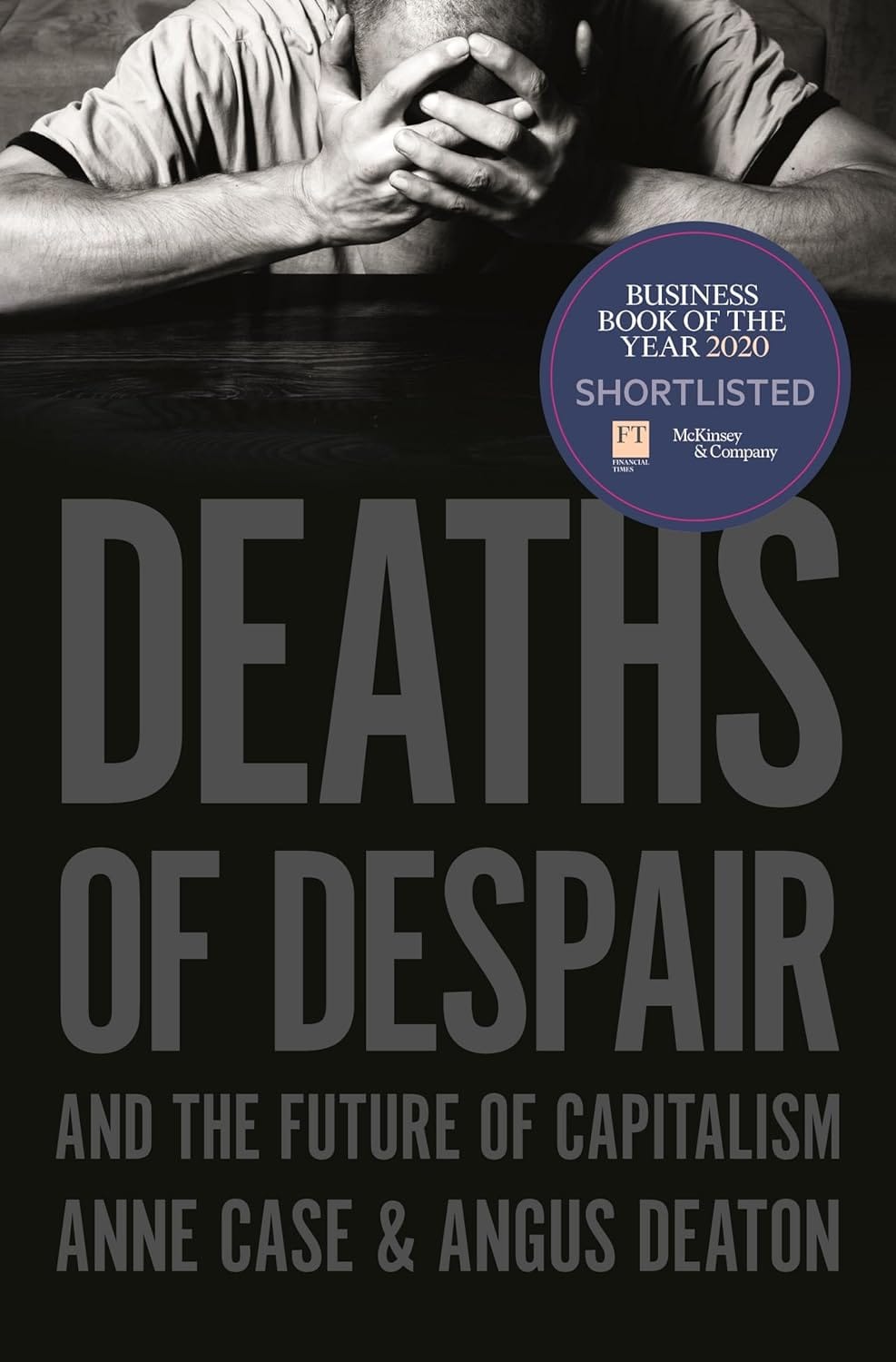
This—perhaps impossible—project to combine individual freedoms with a more communal society runs through the writings of all those now craving a non-utopian alternative to liberal capitalism. Adrian Pabst, head of political science at the University of Kent, argues that capitalism has become monopolistic, especially in the tech sector but also in the old industrial conglomerates. He calls for huge corporations to be broken up to prevent predatory pricing; limits on the concentration of ownership; and the creation of a People’s Fund, with an annual dividend for all. He finds support from Colin Mayer, a former dean of Oxford Business School, who now sees corporations as “becoming a creature that threatens to consume us in its own avaricious ambitions… [it is] a faithful servant no more… the very evolutionary processes which might have been expected to make it more suited to the world in which we live have done exactly the opposite.”
Pabst, in prose that sometimes reads like a tract by a Marxist intellectual (which he is not), slams both establishment liberalism and the new “liberalism” of identity politics. Of the first, he writes that “increasing equality before the law has coincided with growing inequality of status and wealth, which has paved the way for the centralisation of power and the concentration of assets in the hands of an oligarchic few with the resulting diminution of the scope for the shared quest of commonly accepted goals.” Of the new identity politics, he writes that this, too, dissolves community—it represents “a shift from a sense of sacrificial contribution to the common life based on the struggles of representative democracy and collective agency to a culture of victimhood, a movement politics of protest and narcissistic online echo chambers of private preference. It marks the triumph of the 1960s motto that ‘the personal is the political.’”
None of these books, however, offers a way forward. Insofar as a path exists, it is charted by Michael Lind in his 2020 book, The New Class War. Lind has operated more on the centre-Right than the Left, although his thinking is not easily categorised as one or the other. It locates contemporary oppression of the majority in democracies within “the (academically) credentialed managerial overclass, whose members simultaneously dominate the governments, the corporate suites, universities, foundations, and media of the Western world.” Instead of this “overclass” rule, there should be a “cross-class compromise embodied in a new pluralist order, providing the working class majorities in Western nations with far greater countervailing power in politics, the economy, and the culture than they possess today… for democratic pluralists, the state—usually a nation state, but sometimes a multinational state or independent city state—is not a mass of individuals to whom a general will can be attributed, but a community made up of smaller communities.”
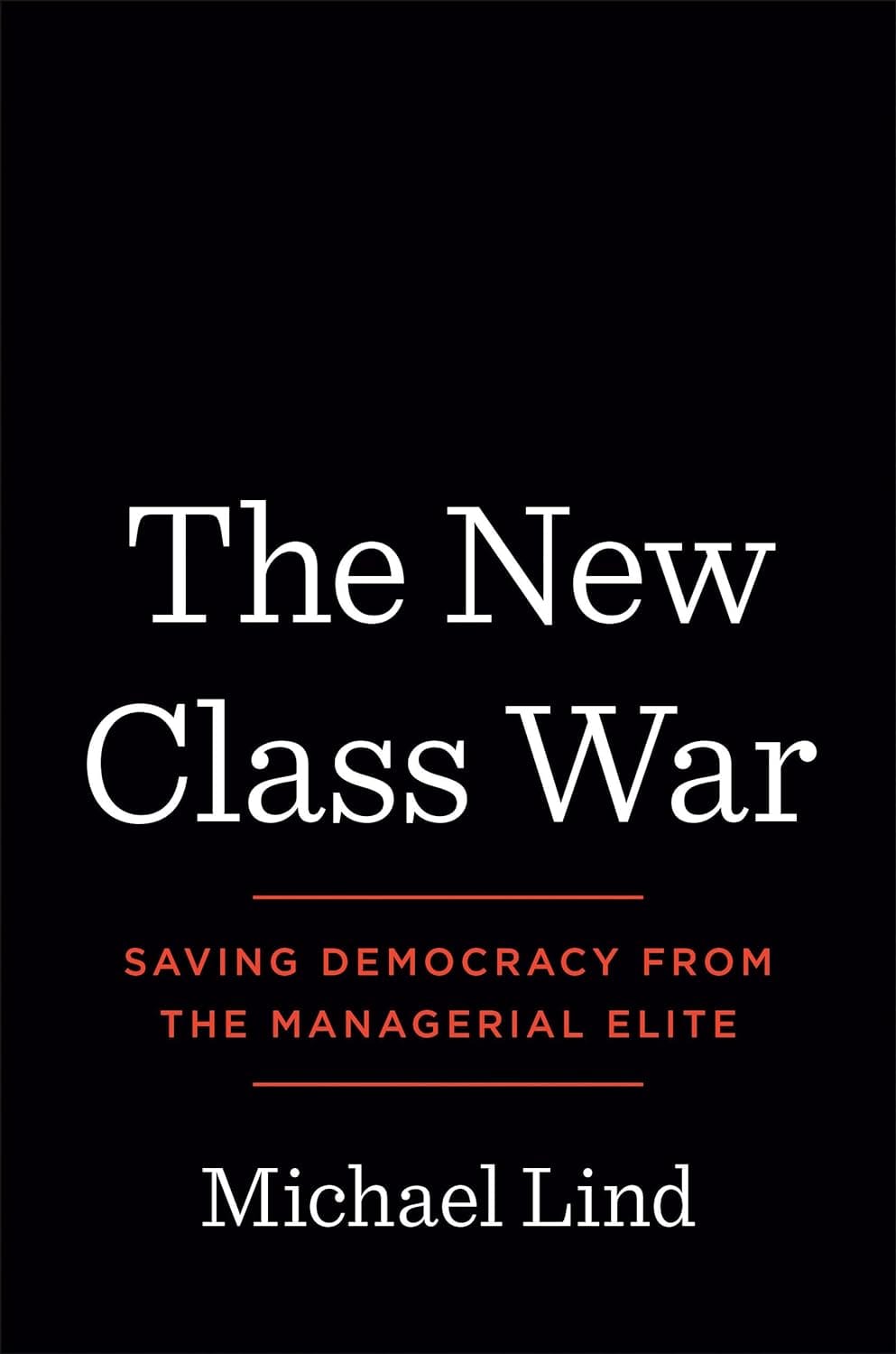
In Lind’s sketch of the future, institutions and groups in civil society would have some legal as well as social power under a national government which “reigns” rather than rules. These communities, many founded on the diminished remains of churches, unions, societies, and clubs, would force a “cross class coalition,” in which economic and social change would be debated, critiqued, modified, and agreed or rejected or delayed. The majority of people, through local and known representatives, would be brought into the possibilities, and constraints, of managing a polity, or part of it.
Vague? To be sure. Full of pitfalls and future blockages? Without question. Its strength, however, lies in the perception that we need to break out of a cul-de-sac that threatens governance itself. The world faces a period in which—provided COVID-19 can be tamed—a return to top-down leadership will exacerbate the vast difficulties in reaching a consensus on how to shape the present and the future. The construction of a politics which seeks to democratise democracy requires clearer definition—because it urgently needs doing.






